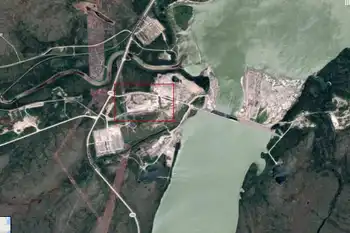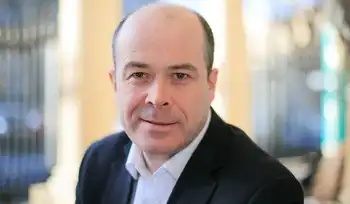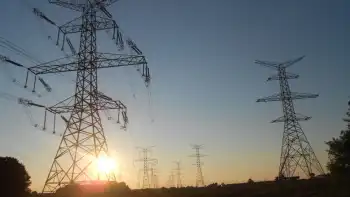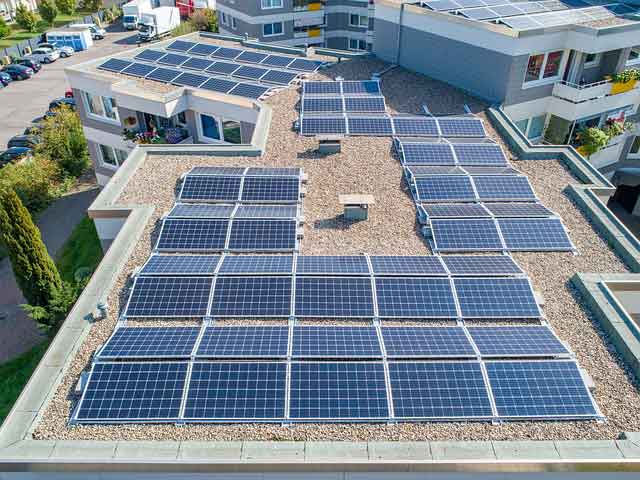Enron's Skilling denies hiding Enron trading
HOUSTON, TEXAS - Former Enron Chief Executive Jeffrey Skilling finished three days of acrimonious cross examination by prosecutors recently, sticking to his assertion the energy company never hid its dependence on trading profits.
Skilling struggled to fight off tough questioning by prosecutor Sean Berkowitz over his testimony that Enron was an "intermediation" company that stood between producers and consumers of power and natural gas, even as he admitted its traders were making speculative bets in the market.
But Berkowitz appeared to show a contradiction between statements Skilling made in court and those he made to investors in 2001.
"Were you communicating to the marketplace that Enron had virtually no exposure to commodity price risk?" Berkowitz asked Skilling.
"No," he replied, pointing out the company regularly released data in its quarterly regulatory filings on the amount of money it bet on power and natural gas prices.
Berkowitz then played an April 2001 televised interview in which Skilling said, "We do not take commodity positions in natural gas and electricity... we have worked very hard over the last decade to eliminate commodity price risk."
Skilling is on trial in federal court alongside former Enron Chairman and CEO Kenneth Lay. Both are charged with hiding the decaying financial state of the energy company that was once the seventh largest U.S. company, and both face decades in prison if convicted.
Enron's descent into bankruptcy in December 2001 - the largest ever in the United States at the time - was the first in a wave of corporate scandals that prompted stricter financial disclosure laws.
Skilling often told analysts in 2000 and 2001 that Enron was a "logistics" company that profited from its unique position in the power and gas industries and that it was not subject to the sharp prices swings in those two commodities.
That was part of Enron's efforts to boost its stock price by positioning itself as a company with stable, growing earnings rather than as a trader whose earnings could swing sharply based on its performance in the commodity markets.
Earlier at the trial, Enron's top West Coast trader, Timothy Belden, testified his group made massive bets in those markets during the California power crisis - and won huge profits of nearly $1 billion in late 2000 and early 2001.
Another Enron executive, David Delainey, testified Skilling hugged him when he showed him the trading profits, and that the company took much of that windfall in 2000 and illicitly put it in a reserve account it could tap later to smooth out earnings in poorly performing businesses.
Skilling has disputed that account, testifying the company properly used cash reserves and said analysts who followed the company knew about its trading operations.
"I think we tried very hard, very hard to communicate the risk position that were we taking in our business," he said.
He and Lay have have contended the company collapsed because of a "run on the bank" triggered by a crisis of investor confidence when it was revealed the former chief financial officer Andrew Fastow skimmed millions of dollars from the company.
Skilling, 52, faces 28 counts of conspiracy, fraud and insider trading, and Lay, 64, faces six counts of conspiracy and fraud. Lay is expected to take the witness stand.
Berkowitz, who finished his cross examination of Skilling, also questioned the former CEO about allegations he approved a move the government contends hid more than $200 million in losses suffered by Enron's retail arm. Part of that unit was subsequently folded into Enron's profitable wholesale group.
Skilling denied the company hid the losses, and said he did not believe the retail arm was suffering at all.
"It was my state of mind at the time that (the retail business) was more likely to show a profit than a loss," he said.
Related News
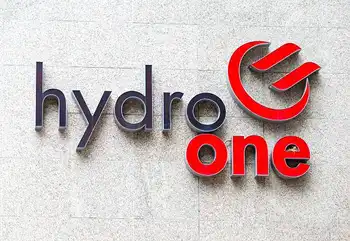
Ontario utilities team up to warn customers about ongoing scams
TORONTO - Five of Ontario's largest utilities have joined forces to raise awareness about ongoing sophisticated scams targeting utility customers.
Some common tactics fraudsters use to target Ontarians include impersonation of the local utility or its employees; sending threatening phone calls, texts and emails; or showing up in-person at a customer's home or business and requesting personal information or payment. The requests can include pressure for immediate payment, threats to disconnect service the same day, and demands to purchase prepaid debit cards, gift cards or bitcoin.
The utilities are encouraging all customers to protect themselves and are providing them with the following…

